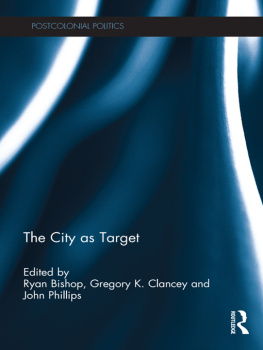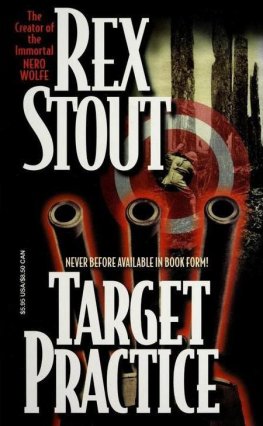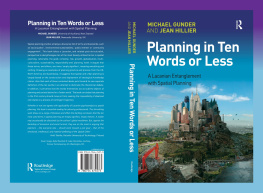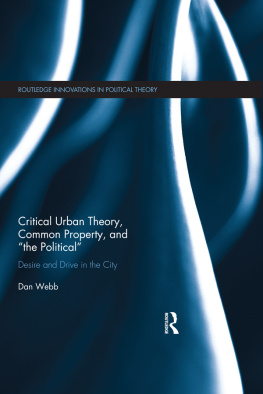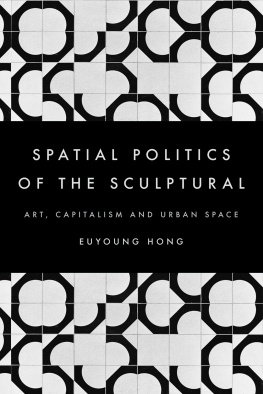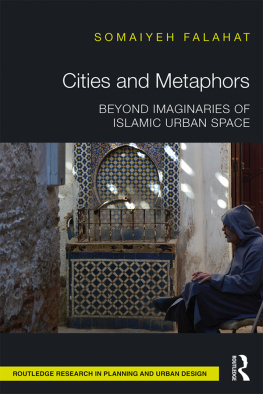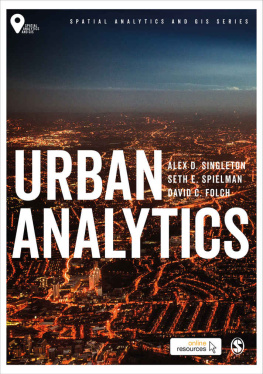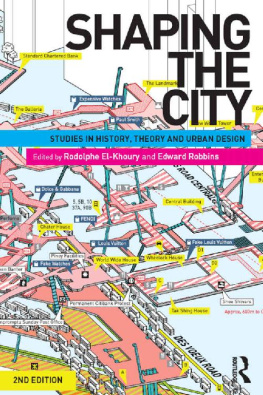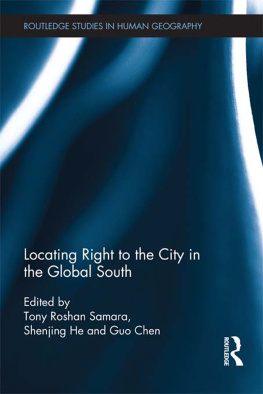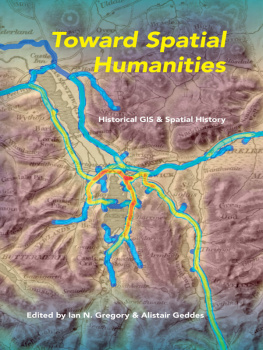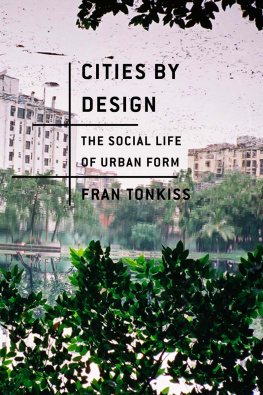Illustrations
Figures
| 10.1 |
| 10.2 |
| 10.3 |
| 10.4 |
| 10.5 |
| 10.6 |
| 11.1 |
| 16.1 |
| 16.2 |
| 16.3 |
| 16.4 |
| 16.5 |
Table
Acknowledgements
The editors are grateful to a host of individuals and the occasional funding body for logistical, material, and intellectual support in the realization of this project. In addition to the individual contributors, we would also like to thank the Faculty Research Committee of the Faculty of Arts and Social Sciences; Lily Kong, former dean of FASS; Alan Chan, former vice-dean of research at FASS; the Urban Studies Research Project at NUS; our many wonderful colleagues in the departments of Geography, History, English, Sociology, and Architecture at NUS who engaged in conversations formal and informal; John Richardson and Robbie Goh, both former heads of the English department; our many excellent graduate students who worked with us on the development of this project; Pal Ahluwalia and Michael Dutton whose series at Routledge provides an excellent home for the book; Nicola Parkin, our wonderful editor at Routledge; and finally our families and friends near and far without whose support none of this would be possible or meaningful.
Contributors
Pal Ahluwalia is a Pro Vice-Chancellor and Vice-President of the University of South Australia. He was previously Research SA Chair and Professor of Post-Colonial Studies. He was a Professor in the Department of Ethnic Studies at the University of California, San Diego, USA, and Professor at Goldsmiths, University of London. He is co-editor of the Routledge Journals African Identities , Social Identities , and Sikh Formations .
Irina Aristarkhova , PhD, writes and lectures on comparative feminist theory, new media aesthetics, and contemporary art. She is Assistant Professor of Womens Studies and Visual Art at the Pennsylvania State University, University Park and Visiting Professor of Gender Studies at the Media Art History department, Danube University at Krems, Austria.
John Armitage is Associate Dean and Head of the Department of Media at Northumbria University, UK. He is co-editor, with Ryan Bishop and Douglas Kellner, of the Berg journal Cultural Politics and the editor of, most recently, Virilio Now: Current Perspectives in Virilio Studies , published by Polity.
Ryan Bishop is Associate Professor of English at the National University of Singapore. He is the editor for the Polity series Theory Now, co-editor of Cultural Politics (with John Armitage and Doug Kellner), and is on the Theory Culture and Society editorial board. He is co-author with John Phillips of Modernist Avant-Garde Aesthetics and Contemporary Military Technology: Technicities of Perception (Edinburgh UP, 2010) and editor of Baudrillard Now (Polity, 2009).
Gregory Clancey is an Associate Professor of History at the National University of Singapore. He is also the leader of the STS (Science, Technology, and Society) Research Cluster at the Asia Research Institute (ARI) and the Master of Tembusu College at NUS. He received his PhD in the History and Social Study of Science and Technology from MIT in 1998. His book Earthquake Nation: The Cultural Politics of Japanese Seismicity (UC Press, 2006) won the Edelstein Prize from the Society for the History of Technology in 2007.
Verena Andermatt Conley teaches in the Department of Comparative Literature at Harvard. She is the author of many books including The War against the Beavers (University of Minnesota Press, 2003), Ecopolitics: The Environment in Poststructuralist Thought (Routledge, 1996) and Helen Cixous: Writing the Feminine (University of Nebraska Press, 1991).
Jordan Crandall is a media artist and theorist based in Los Angeles. He is Associate Professor in the Visual Arts Department at the University of California, San Diego. His video installations have been presented in numerous exhibitions worldwide, including recent group exhibitions at Tate Modern, London and the San Francisco Museum of Modern Art. He writes and lectures regularly and is the founding editor of the new journal Version . He is the 2011 winner of the Vilem Flusser Theory Award, given by the Transmediale, Berlin and the Vilem Flusser Archive.
Nick Cullather is the author of The Hungry World: Americas Cold War Battle against Poverty in Asia (Harvard, 2010) as well as several other books. He teaches history at Indiana University.
Robbie B. H. Goh is Associate Professor in the Department of English Language and Literature, and Vice-Dean of the Faculty of Arts and Social Sciences, National University of Singapore. He works on Asian diasporic literatures and cultures, christianity in Asia, nineteenth-century literature, and popular culture. Recent publications include Contours of Culture: Space and Social Difference in Singapore (Hong Kong University Press, 2005); Christianity in Southeast Asia (Institute of Southeast Asian Studies, 2005); Narrating Race: Asia, (Trans)Nationalism, Social Change (ed., Rodopi, 2011), and articles in Journal of Commonwealth Literature, Social Semiotics, Journal of Religion and Society, Material Religion, Semiotica, Postsecular Cities (ed. J. Beaumont and Chris Baker), and elsewhere.
Stephen Graham is Professor of Cities and Society at the Global Urban Research Unit in Newcastle Universitys School of Architecture, Planning and Landscape. His books include Telecommunications and the City (Routledge, 1996), Splintering Urbanism (Routledge, 2001), both with Simon Marvin, The Cybercities Reader (Routledge, 2004), Cities, War and Terrorism (Blackwell, 2004), Disrupted Cities: When Infrastructures Fail (Routledge, 2009), and Cities Under Siege: The New Military Urbanism (Verso, 2010).
Li Shiqiao is Associate Professor at the School of Architecture, the Chinese University of Hong Kong. He studied architecture at Tsinghua University in Beijing and obtained his PhD from AA School of Architecture and Birkbeck College, University of London. His current research is focused on Chinese cities. His writing has appeared in international journals including Bauwelt , Domus China , World Architecture , Cultural Politics , Theory Culture & Society , Cultural Studies (Wenhua Yanjiu), Journal of Architecture , Journal of Architectural Education , Architectural Theory Review , and Journal of the Society of Architectural Historians , and his books include Architecture and Modernisation ( Xiandai sixiang zhongde jianzhu , China WaterPower Press, 2009) and Power and Virtue, Architecture and Intellectual Change in England 16501730 (Routledge, 2007).
Rajeev S. Patke teaches at the National University of Singapore, and has authored The Long Poems of Wallace Stevens (Cambridge University Press, 1985, reprinted 2009) and Postcolonial Poetry in English (Oxford University Press, 2006), and co-authored The Routledge Concise History of Southeast Asian Writing in English (Routledge, 2009). Co-edited books include Institutions in Cultures: Theory and Practice (Rodopi, 1996) and A Historical Companion to Postcolonial Literatures: Continental Europe and its Empires (Edinburgh University Press, 2008). He is currently writing a book on Modernist Literature and Postcolonial Studies (Edinburgh University Press).
John W. P. Phillips is Associate Professor in the Department of English Language and Literature at the National University of Singapore. He writes on philosophy, literature, critical theory, aesthetics, psychoanalysis, urbanism, and military technology. He is currently researching a project on autoimmunity in biotechnology and political philosophy.

